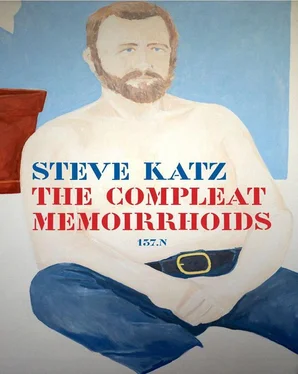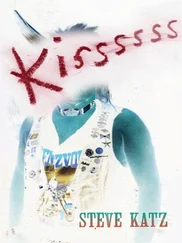For many years Forrest Bell, Jingle’s father, drilled with hand-steel the hard-rock face of his tunnel into Buckskin Mountain. He worked alone, tamping in the dynamite one or two sticks at a time, blowing out a few more feet. He laid the rail. He mucked the face out himself, pushing some rusting old mine cars. He had calculated that at around 900 feet, give or take a few, he would crosscut the vein of gold that had produced so richly for the old Buckskin mine on the other side of the mountain, shut down in the 40’s by a mill fire and other circumstances. He reveled in this work, said he thought of mining as the cleanest way to make money. He had quit school for mining engineering just a couple of credits away from getting his degree. When I met him he was frail and bent, suffered from silicosis. It would take just another ninety feet, he said, to find out if his predictive mapping was right. This was his lifetime gamble.
A problem was pushing enough air into the tunnel to continue the work. There wasn’t enough oxygen for him at the mine face. He couldn’t afford the huge fan it would take to do the trick. Forrest was frail, but still could put in the hours at work. Once I offered to dig out the spring that trickled scarce drinking water for the house on their remote Buckskin claims. I was fairly strong, and enjoyed heavy work. I worked for three hours with pick and shovel. I sharpened the pick. The ground was harder than concrete. When I swung at it a tiny spray of dirt loosed up, but the pick clanged and bounced. I made little progress and gave up after three hours. Forrest went out and quietly finished the job. It amazed me how fast he, in his weakened condition, could loosen up and move that earth. He hardly swung the pick. Wasting no motion he just let it fall. The hard-pan fell off in clumps. The shovel hardly turned in his hands.
Forrest talked with some difficulty, wheezing, always struggling for breath. He was well educated, an intelligent, modest old sourdough. He read a lot, and was deeply informed about the world, and everything that interested him technically. I was privileged to get to know him. He died with his gamble unanswered, with ninety feet to go. Harry Rogan married his widow, Marian, after an appropriate wait. For years of summers Harry had parked his small Airstream Trailer above the Buckskin house, the windows covered with newspaper. Harry had worked in logging on the upper peninsula of Michigan, and had a reputation for being one of the strongest men in the woods. He enjoyed crushing your hand with his handshake, leaving it corrugated for the rest of the day with furrows made by his fingers. He was otherwise very gentle, loved his coffee, and loved his beans that cooked constantly on one of his burners. He admired Forrest a great deal, and stuck around to help him. After Forrest died he removed the newspaper from his windows then married Marian. The rumor was that he, pushing sixty, had been a virgin till then. He even said he had never met any woman who appealed to him until Marian. He went the final ninety feet and found nothing, but pleaded that he was sure he would cross the vein if he could drop a shaft just twenty feet. Marian wouldn’t allow it. Harry already had some stone in his lungs, and she didn’t want to lose another husband to silicosis.
I got to know the group that came to be known as “earth artists” through Virginia Dwan’s gallery. In 1968 she showed some pages from The Exagggerations Of Peter Prince in an exhibition of language art at her gallery on 57th Street. Her great gallery did innovative shows of Robert Smithson, Walter DeMaria, Karl Andre, Charles Ross, Michael Heizer, et al; and her encouragement and support were instrumental in producing some of the most important earth works. I was living in Ithaca at the time and volunteered there to assist Bob Smithson as he put together his stone quarry / mirror piece. It felt at once obsessive, silly, visionary, useless, following Smithson through the shrubbery and the quarry. The monologue he spewed and recorded engaged even Borges occasionally. Smithson was weird, brilliant, and fascinating whenever you tuned in. The whole idea of earth art made me think of Forrest giving thirty years of his life to a tunnel that could have gone on forever to nowhere. The muck heap from that labor was art. The tunnel itself, its moist walls, its timbers threatening to collapse, its rails hidden in spots by falling ceiling and walls, that all was art. Its purposeful purposelessness was art. Perhaps we can call it folk earth art.
I don’t know what Forrest might have thought of this designation. Gold was his goal. Virtual gold was his ambition. Curiosity and speculation was his motivation, and it extended over time beyond the vanishing dream of life. The thought of his work as art might have seemed ridiculous to him, but he probably would have enjoyed it too.
Never knew her. My mother killed her for us before she ever died. As far as myself and my sister knew our maternal grandmother had been dead forever. Our Uncle Sammy informed us finally of his mother’s, my grandmother’s, actual death. Sammy came almost every night to our small apartment in Washington Heights to play pinochle with my father, disabled from his heart condition. He stayed away only when he went to the opera. He was a small, balding man, self-effacing, kind to a fault. After his first wife died he married a woman too simple for him, with light Down’s syndrome. She dwelled mildly in affection and sweetness, but was sparse company for him. She sometimes went to the opera with him, but he got impatient with her noises. He loved opera, and when he didn’t show up we’d assume that was where he was. Or perhaps he had gone for a week with his brother Dave to pre Castro Havana to get laid. They both sold insurance, and won trips as bonuses. Dave was the opposite of Sammy, a total narcissist, married to Esther, a large, handsome woman who performed with strange willingness as his beast of burden. Dave’s famous gesture on birthdays and other occasions was to send as a gift a framed portrait of himself.
Sammy and my dad dealt the cards and smoked Chesterfields till way past my bedtime. Would that be my life, I wondered, pinochle at the kitchen table late into the night, to pass the time? To devour the time? My father always cheated on Uncle Sammy, who probably knew but tolerated it because he was a lonely man who appreciated company. Watching this ritual almost every night turned me off forever to card games, to almost all games including chess and go, often to my own social detriment. Life seemed sad in my house in the night. I vowed to get more life into my life.
Uncle Sammy kept track of his mother. He visited her where she worked as a cook in The Catskills, but one condition of his coming to our house was that he never mention his and my mother’s mother, my own grandmother, and that if he ever speak of her at all it be as if she was already dead. I worked some summers in the Catskills before she died, and there was a chance she even cooked at a resort where I was busboy or waiter. He did bring the news when she actually died. There was no chance then that my sister or myself would ever get to meet her.
I’ve never known even her name. If it was mentioned, I didn’t pay attention. She was my grandfather’s second wife. His first wife bore him seven kids and then died. The family in Belarus sent over the next oldest sister to replace her, to marry him and take care of him, and live on the Lower East Side and help raise the kids. She had no choice in this. It was, at least, an escape from the pogroms. The only image I can raise of her is of a peasant woman without a face, like a woman from an imaginary painting by Brueghel. I’d seen The Harvesters at the Met. She’s wrapped in coarse cloth smocks, soiled and torn, big strong hands curled. She bore “Poppa” six more children, my mother one of the older ones, uncle Sammy and Uncle Dave in that flock. She served “Poppa” assiduously for many years, but suddenly had enough and decided to break free, out of the trap. How did it happen? Did she run from abuse? Did she sneak away in the middle of the night? Did she tell him to fuck off in Russian or Yiddish, turn her back and slam the door? I don’t think she kissed him goodbye. I feel like I totally understand her. By the time my curiosity was whetted Uncle Sammy was dead, and Uncle Dave too. Anyone who could have told me more was gone. My mother remained too bitter to talk about it. My sister knew only the details that I’ve included here. Sally Goldstein, my mother, dwelled most of her life in resentment of the burden that was laid on her by her mother’s desertion. She was left to take care of “Poppa” and the family, the only one responsible enough to take on the task. The family disintegrated slowly after “Poppa” died. Brothers and sisters drifted apart like space debris. Contact with the mother might have held things together. My mother, however, wouldn’t have it. Her bitterness was absolute. I understand her feelings but I’m sure I would have enjoyed knowing my grandmother. She defended herself. She had to make her own life. She freed herself from slavery. I hope her “I’ve had enough of this” molecules, her “I’m out of here. I won’t take any more of this shit,” molecules are dancing in my own, in my kids’ DNA. She must have been one tough, independent woman.
Читать дальше












